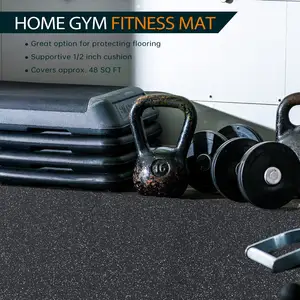

1/2" Thick 48 Sq Ft Rubber Top High Density EVA Foam Exercise Gym Mats Puzzle Floor Tiles For Home Gym Hea


KAIERWO OEM High Quality Precision Silicone Rubber Molding Vacuum Casting Service 3D Printing Mock Up Made In Shenzhen














Rubber moulds for tiles are essential tools in the manufacturing of various tile designs, offering flexibility and durability to producers. These moulds are crafted from a synthetic rubber blend, primarily comprising silicone, which shares a similar binding structure with materials like quartz and glass. The adaptability of rubber mould tiles makes them a popular choice for creating a wide array of tile patterns and textures.
The range of rubber moulds for wall tiles and flooring options is extensive, catering to different aesthetic and functional requirements. Interlock rubber mould variants are particularly sought after for their ease of assembly and the seamless finish they provide. These moulds are not just limited to flooring but are also used in wall tile production, enabling intricate designs and patterns that are both visually appealing and long-lasting.
Rubber molded interlocking tiles are known for their precision in creating consistent shapes and sizes, which is crucial for the interlocking mechanism. The material used in these moulds ensures a high degree of elasticity and resistance to wear, allowing for repeated use without compromising the quality of the tiles produced. This resilience is particularly important for producing tiles rubber mould designs that require intricate detailing and fine textures.
One of the primary advantages of using rubber moulds for tiles is their cost-effectiveness. The durability of silicone rubber moulds means they can be used repeatedly, reducing the need for frequent replacements. Additionally, the non-stick nature of silicone rubber simplifies the demoulding process, minimizing damage to the tiles and the moulds, thereby enhancing the overall efficiency of the production process.
While customization is a significant feature of rubber moulds, standardizing certain elements like lift bars, connection sizes, and clamp slots can further streamline the manufacturing process. This standardization allows for compatibility across various mould designs, making it easier to switch between different tile productions without the need for extensive adjustments or additional equipment.
Selecting the appropriate rubber moulds for tiles is crucial for any tile production endeavor. Factors such as the design complexity, the desired texture, and the production volume should guide the choice of mould. Alibaba.com, as a leading B2B platform, connects buyers with a diverse range of suppliers offering moulds that cater to all these needs, ensuring that you find the right match for your specific tile manufacturing requirements.